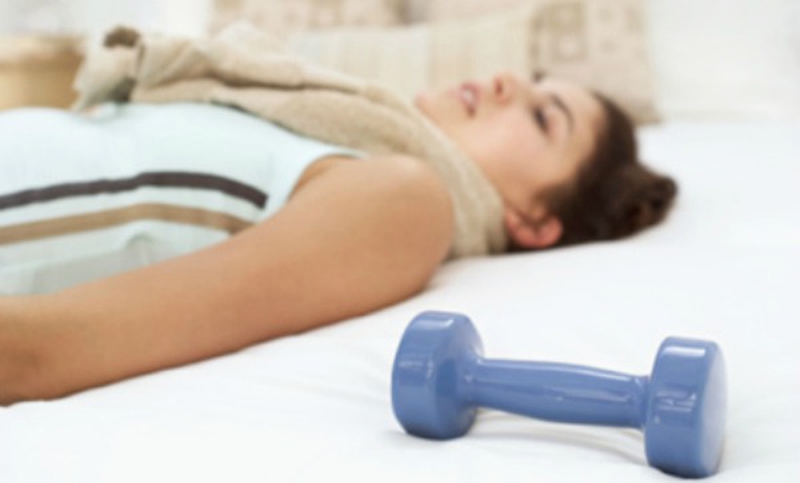If you care about your health then you will likely be aware of the importance of eating right and exercising often, as well as resting sufficiently. What about sleeping after exercise? Is it beneficial or not to sleep right after exercising? Continue reading to find out.

Is It Ok to Sleep Right After Exercise?
The first thing to understand is why you are asking this question. If you find that you can't help but sleep following an exercise (even if you don't want to), then this may be due to an underlying medical condition and you should speak with a medical professional as soon as possible.
When ascertaining whether it is a good idea to sleep after exercising, it would be useful to know what happens to our bodies when we sleep post-workout. When our bodies undergo any strenuous physical activity (such as running), muscle fibers are torn and damaged. The body naturally repairs the muscles which causes them to grow and become stronger, and this only happens during periods of rest and mainly when you are sleeping. This is why it is extremely important to get enough sleep when you are training or working out.
Sleeping after exercise is absolutely fine as long as you have already eaten (to refuel your body), hydrated, and carried out your post-workout stretching and cool-down.
In regards to sleeping after exercise, the time that you sleep is less important than the amount you sleep, as long as you are getting enough rest. In all honesty, sleeping directly after exercising will have no negative side effects.
It is important to remember to warm up before you exercise, then stretch your whole body sufficiently, practice proper technique when working out, and stretch post-workout to cool down. It is equally, if not more important, to remain well hydrated at all times (drinking plenty of water throughout the day) and make sure that you eat enough of the right food to fuel the growth of your muscles.
If you want to sleep after you exercise to help with muscle rest and recovery but have prior commitments preventing you from spending hours in slumber, then having a quick 20-30 minute nap may be the best option. Although it will not allow you to reach deep-sleep, it may help you feel more energized post-workout. That being said, taking naps throughout the day can also have an adverse effect on your sleeping pattern which could disrupt your ability to sleep properly. It is best to find what works best for you.
What If I Cannot Fall Sleep?
Some suggest that you do not exercise three hours prior to sleeping if you have trouble getting to sleep post-workout. This gives your body enough time to recuperate and return to a state of rest, helping you get to sleep easily. Having said that, many individuals find it easier to sleep following a workout. If you are struggling to sleep after you exercise, try some of the tips below:
Avoid coffee/caffeine
Caffeine before you exercise can help you during your workout but it will not help you get to sleep. If you are struggling to sleep post-workout, try cutting out caffeinated products.
Avoid alcohol and cigarettes
The downsides related to these substances are well known, and consumption of either can also attribute to one’s inability to sleep.
Avoid distractions
Make sure that your room is dark and quiet, and turn off all electronically devices that you don't need. Sleeping after exercise is made more difficult if you are watching tv in your bedroom.
Raise your body temperature
Take a hot bath or shower to raise your temperature before you go to bed. Once you leave the shower or bath and get into bed, the drop in temperature will trigger your body into “shutting off”, helping you get to sleep.
Dim lights
Dimming the lights in your home before you go to bed helps to prepare your body for rest. Consistent light tricks your subconscious mind into thinking it is daytime, so dimming the lights (or turning them off) may be beneficial.
Other methods
Counting sheep is an old favorite of many. You can also try deep breathing exercises to calm your body into a natural state of relaxation, making it easier for you to fall asleep.
If all else fails, try to do something relaxing if you can't sleep until you feel tired enough to try again. Inability to sleep can be caused by numerous things, if it is impeding your every day life then seek the advice of a medical professional.
View All Comments /Add Comment